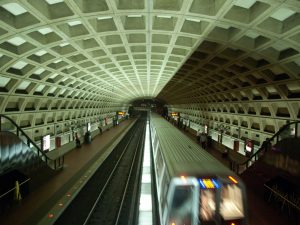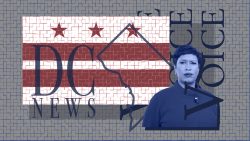The Washington Metropolitan Area Transit Authority (WMATA) will refund metro riders whose train is delayed by 15 minutes or more during the rush hour commute in its new “Rush Hour Promise” initiative.
The policy was put into effect on the morning of Friday, Jan. 26. As soon as a rider checks into the station using a SmarTrip card, the trip timer begins and ends when the rider exits the Metro. Riders must register their SmarTrip card online to be eligible for the program.
“Rush Hour Promise is our commitment to riders that we are accountable for providing reliable, on-time service,” Metro General Manager Paul J. Wiedefeld wrote in a release on WMATA’s official website. “We want our customers to know that we value their time, and we’re going to do everything we can to keep them moving safely and efficiently.”
In cases of extenuating circumstances, including major repair works, severe inclement weather, and “force majeure” events, riders will not receive a refund, per WMATA’s website. The Washington Post reported that 0.3 percent of all trips will qualify for refunds.
Unsuck the DC Metro, an anonymous blog and Twitter account that documents the Metro’s problems, is pessimistic about the scheme’s potential.
“This refund thing is a gimmick,” an anonymous Unsuck representative wrote via direct message to the Voice. “Most people want to arrive on time, not [receive] a refund.”
The representative criticized the algorithm that Metro uses for measuring trip times, pointing to the lack of a concrete timetable for the departures and arrivals of Metro trains and buses.
“First of all, what does Metro mean by ‘on time?’” the representative wrote. “It’s very confusing. You need a degree in applied math to understand it. Most real subways have timetables. Where are Metro’s?”
The Metro’s method of timing trips, MyTripTime, gives estimated durations for particular trips while taking into account the time riders must wait for or transfer to trains. This means that the time estimated using MyTripTime’s algorithm for any given train ride can vary widely depending on what station riders arrive at or transfer on. For example, a given train ride may have an expected travel time of between 10 and 20 minutes, a ten minute difference that riders then have to add another 15 minutes onto to get the refund.
The Rush Hour Promise stipulates that a rider (with a registered SmarTrip card) receives a refund on this trip only if it lasts at least 35 minutes, or 15 minutes more than the maximum length that the Metro estimates using MyTripTime. A recent Washington Post article found that 0.3 percent of all trips would qualify for refunds.
WMATA’s reimbursement of inconvenienced metro riders comes on the heels of its “Back2Good” program, which was launched in November 2016 and aimed to restore rail reliability. Problems within the system have persisted, however, leading to a decline in Metro ridership of almost 12 percent.




